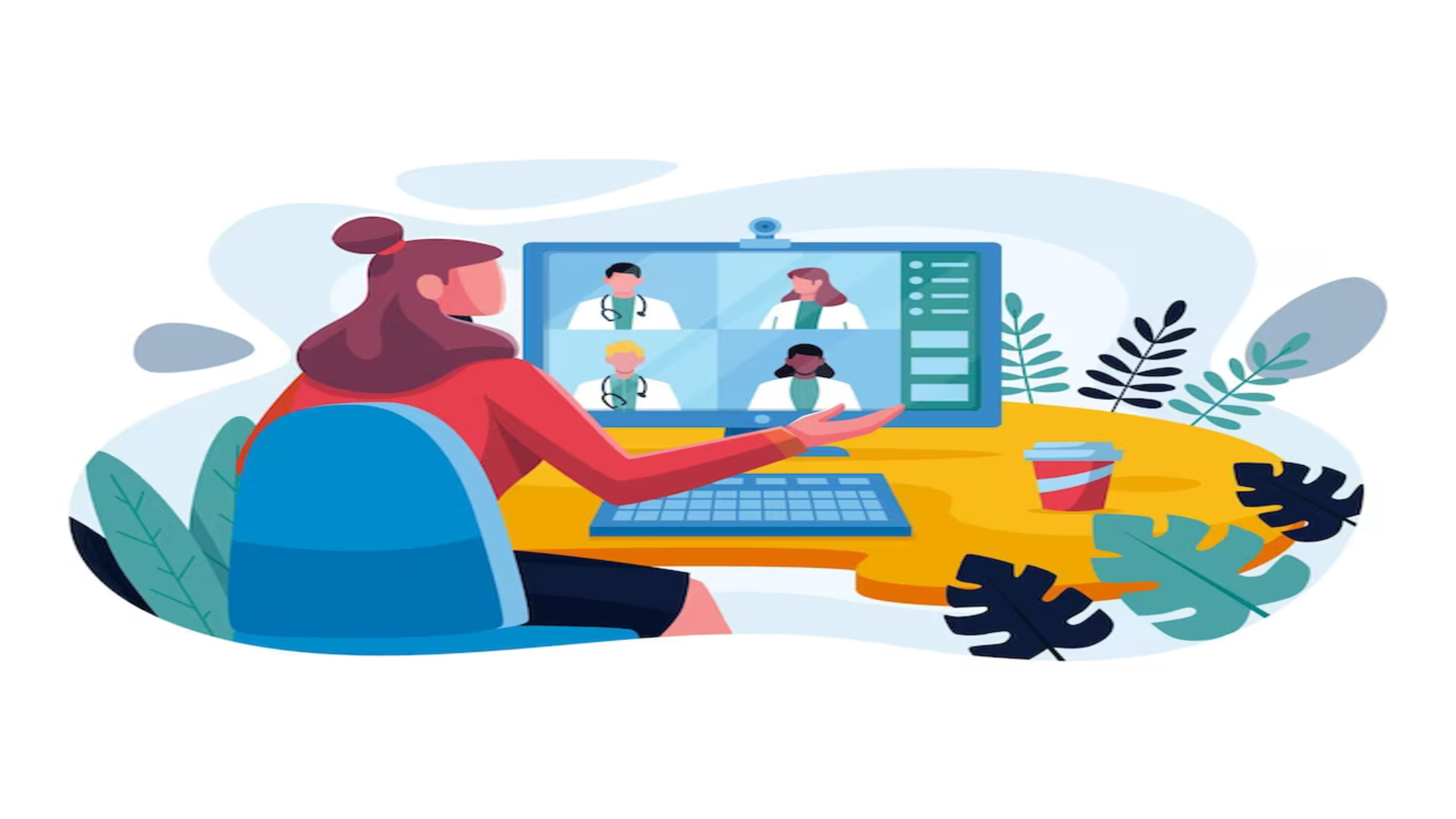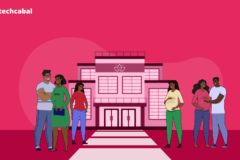In this digital era, technology is irrevocably embedded in our daily lives, and as such, our online experiences have an outsized impact on our mental health. However, technology can also offer support for the promotion and nurturing of our mental well-being.
Social media platforms like Facebook, Instagram, and Twitter have become ingrained in our daily routines, allowing us to connect with others, share stories, and express ourselves. However, regular usage of social media can also lead to increased rates of anxiety and depression, particularly in young people.
But the internet transcends this dichotomy, and can also offer resources and digital support to better understand mental health conditions and get help for them.
A closer look at the connection between our digital lives, and our mental health can reveal a number of ways to make the most of the resources digital support offers to nurture our mental well-being.
Understanding digital support
Digital support for mental health comprises a range of resources and platforms that leverage technology to provide assistance for mental health issues. This includes concept online therapy platforms, virtual communities, chatbots, videos, and articles.
Digital support for mental health provides some sort of anonymity, allowing individuals to seek help without the fear of being judged. It also facilitates connections with diverse support networks, enabling individuals to connect with others who understand and share similar experiences. Additionally, with round-the-clock availability, digital support for mental health ensures that individuals can always access help when they need it.
Although digital mental health support isn’t a replacement for traditional therapy, it combines technology and human interaction to provide accessible, informative, and practical assistance to individuals seeking mental health help.
The impact of social media on mental health
Nigeria’s mental health system faces numerous challenges and gaps, especially in local communities. There is a lack of awareness and understanding, which leads to stigma and discrimination. This worsens existing issues and creates barriers to accessing quality care. Statistics show that 80% of Nigerians with mental health needs cannot access care due to societal attitudes toward mental illness and a lack of appropriate resources, facilities, and mental health staff.
Hauwa Ojeifo, a certified integrative mental health coach and activist, and the founder of She Writes Woman and Safe Place Nigeria shed some light on the challenges surrounding the utilisation of social media for mental health support and interventions. In a conversation with TechCabal, she explained that not everyone with a mobile device has access to digital spaces. “We have to recognise that whilst mobile phone penetration in Nigeria can seem quite high, internet penetration is not as high as we think,” she told TechCabal.
“So as much as we are using social media or digital media as opportunities to spread mental health awareness, to provide accurate information and knowledge around mental health, and to provide some sort of first aid, we have to recognise that we’re actually not reaching the furthest behind first. We’re not reaching, perhaps most of the grassroots, and the people who may not actually have the privilege, access, or orientation to be able to navigate the digital space,” Ojeifo concluded.
Nonye Ukwuoma, a licensed clinical psychologist, psychotherapist, and founder and lead consultant at 360 Psyche, believes that social media can also be used to spread misinformation about mental health as well as foster mental health challenges. “Social media can promote misinformation about mental health and encourage unreliable sources. Social media creates its own mental health challenge such as cyberbullying, even within the space where people come to seek support. I have seen spaces on social media that should be considered ‘safe’, but they didn’t look safe because the suggestions offered as support can be outrightly or silently unhealthy for mental health,” Ukwuoma explained.
However, Ojeifo is optimistic about the support digital access provides for individuals facing mental health challenges. She adds that the access plays a crucial role in bridging gaps. “I would say there’s been a lot of upsides to digital support, it means that we don’t have to be in physical proximity to mental health support before we can access it, and we can also get a network of community. And I think that’s something that is largely underestimated in the mental health recovery process, especially on this side of the world,” she said. “The digital space offers us an opportunity to connect with people just like us going through similar challenges, but also see what is working for other people and try to use that for ourselves. Having these sorts of interventions plug the gaps is very, very helpful in moving the needle forward.”
Sharing in Ojeifo’s optimism about digital support, Ukwuoma believes that face-to-face interaction isn’t always necessary, and digital support methods will allow professionals to prioritise urgent mental health needs and ultimately lead to improved outcomes for clients. “We are a global village and one of the things we now know is that we do not have to see face-to-face. When I started practising, it seemed almost alien that we would help a client when they were not physically present.” she said. “This sometimes stretches a treatment plan that may eventually affect the prognosis. Currently, most organisations including 360 Psyche, encourage and prioritise digital support. Clients get support via phone calls, emails, chats, and video calls, among others. This gives time to focus on more pressing mental health needs, which translates to a better prognosis for clients.”
Arinze, an active participant in an online mental health awareness community called Omhac, shared his perspectives about the positive impact of digital platforms and how Omhac has enriched his understanding of mental health. In joining the online community, his intention was to gain more knowledge on mental health. “I find it very easy to connect and interact with people in the group, and I’ve increased my knowledge of mental health. I’ve learned more about different techniques when combating mental health illnesses, and I have a general knowledge about how some of these things affect our day-to-day lives and the people that are close to us,” Arinze said.
He also expressed how helpful and supportive the online community has been. “I find their Twitter spaces very, very helpful. They host it once a month and they invite other speakers to come to share their thoughts or educate us further on things that relate to mental health. The group is very heavy on teamwork, everybody always wants to help in one way or another, and it has helped me out with my anxiety. I now know better in dealing with it and how not to let it overwhelm me sometimes. I would 100% recommend it to people who are looking for online mental health support groups because it is easy to access and it is very, very enlightening.”
Exploring and embracing digital support
According to Ojeifo, more people need to embrace the idea of digital support, due to the absence of community-based mental health services in Nigeria and the limited focus on mental health at the national level. “We’re in Nigeria, where some statistics show that there are just 300 psychiatrists, in a population of over 200 million Nigerians. So you can see that that is a stark statistic. That is data that is probably not going to close in another 10 to 20 years,” she said. “We’re looking at a country where there is barely any sort of community-based mental health care services that can reach the population of the grassroots, where mental health is not particularly yet at the forefront of the healthcare agenda, public health agenda, disability agenda, or even orientation agenda in the country. And so what that means is that, more often than not, or more likely than not, you would need to engage with the support that is not provided by the system itself. That is state-owned facilities and things like that.”
Ukwuoma echoed her sentiments promoting digital support for mental health, citing the convenience and sense of belonging that digital support offers as selling points. “More people should embrace digital support as it provides individuals with the opportunity to seek support and information from the comfort of their own homes, at any time that is convenient for them. Online communities, forums, and support groups provide a sense of belonging and support, allowing individuals to share their stories, exchange advice, and find solace in knowing they are not alone. A part of our brain that promotes wellness is activated when we know we are not alone,” Ukwuoma explained.
Ojeifo believes that a significant contributor to the success of her organisation, She Writes Woman, is the fact that it is composed of individuals who have personally experienced mental health conditions. “I believe the one thing that we’ve done over the years, something that works great for us is first, the fact that we are an organisation of people with mental health conditions,” Ojeifo said.
“I believe one of the things that make digital platforms trustworthy and makes people engage with them perhaps a bit more closely than others, is knowing that the people on the other side are people like me. And for us, that has been a distinguishing factor. It’s recognising that people know that, oh, my therapist might also be somebody who lives with a mental health condition, or at least I know this organisation speaks from the point of view of people like me.” she added.
Ukwuoma also emphasised the significance of digital support platforms having a trained professional to monitor and provide streamlined support. “It’s important to have a monitoring person or persons. People get more streamlined support when the support is monitored by a person trained in mental health and emotional support. It’s important to set enforceable boundaries and there should be an opportunity for online members to seek help from a licensed professional through secure and private channels digitally. Not all forms of help can be gotten from online communities and 24/7 online support is important because it offers people an opportunity to get help promptly,” she explained.
Ojeifo addressed the potential negative impact of social media on mental health and gave strategies or guidelines that individuals can follow to navigate these challenges. She suggests that it is essential for individuals to recognize and acknowledge that they are not superior to the tools they use, as it sets the foundation for making necessary adjustments. “Whether we like it or not, there are immense negative effects of social media. In the science of social media, there’s a psychology to it. It’s understanding human behaviour, understanding buyer behaviour, understanding consumer economics and consumer psychology,” she told TechCabal.
“I generally tell people, the first thing to do is to acknowledge that we’re not more powerful than these tools because that also sets the ground for how we can begin to adjust. We have a certain kind of internal arrogance when we think we’re more powerful than the tools. Yes, they are just tools and it depends on how you use them, but it’s also recognising that these tools have been carefully curated, to actually pick on our flaws as human beings, or at least the neurobiology or neuroscience that we are all governed by,” she added.
Ukwuoma also highlighted the importance of setting firm boundaries when navigating social media. Her reasoning was that since it is not possible to control how people behave on social media, it is important to minimise the potential for cyberbullying and online harassment. “The truth is, we really can’t dictate how people will act or react on social media, and we need to accept that. Setting boundaries helps protect your privacy and reduces the risk of cyberbullying or online harassment. Develop a critical mindset when consuming content on social media, and question the accuracy and reliability of information before accepting it as truth. Verify sources, fact-check information, and be cautious of misinformation or sensationalised content that can contribute to anxiety or fear,” she said.
Emerging trends in the mental health space
In the final stages of our discussion, Ojeifo highlighted AI and telemedicine as some technologies she found particularly promising but raised concerns about their possible negative consequences. “AI and telemedicine are two big emerging trends that we see in the space. But I am a bit more cautiously optimistic that whilst they may seem like very promising tools in the short term, I worry about the possible downsides. If the right regulations and safeguarding are not in place, and if they are governed by the same capitalist ideologies that we use to create other apps like social media apps, where we are looking at a profit over the person that is using it.“
Ukwuoma described AI-powered chatbots as interesting, highlighting her fascination with the use of machine learning and artificial intelligence to provide emotional support. “A few years back, I watched a program where a person was receiving emotional support from a bot powered by machine learning and artificial intelligence, and I was wowed. Consistently, we have seen robots help people cope with loneliness, stress, and special educational needs, among others. While some may argue that this may outrun mental health professionals, I personally think it will help bridge treatment gaps.” she said.
“An emerging technology I find particularly interesting is the AI-powered chatbots, dedicated to emotional support. It is mind-blowing. This will help more people, while we can focus more on fewer, more time-needing situations,” Ukwuoma concluded.
What do you think about our stories? Tell us how you feel by taking this quick 3-minute survey.






















